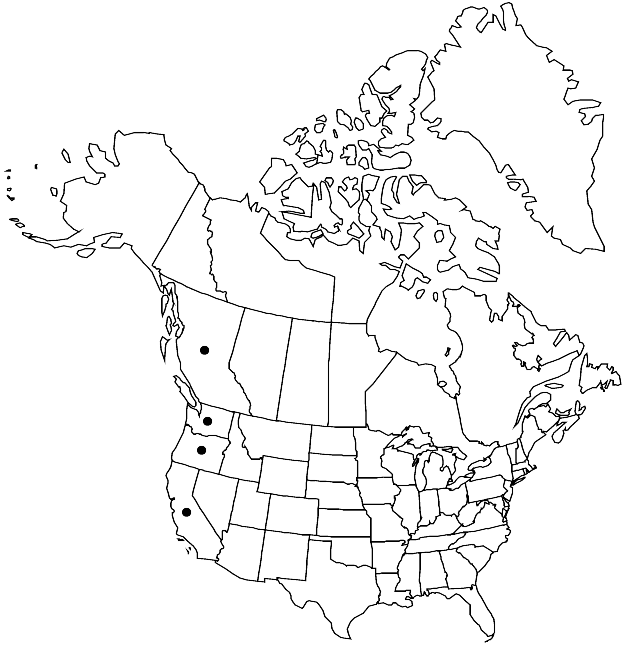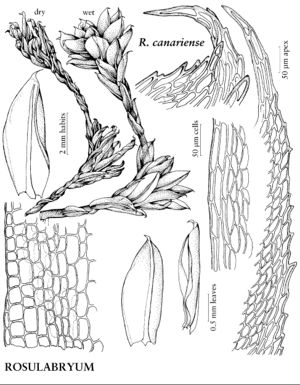Rosulabryum canariense
Biodivers. Poland 3: 162. 2003.
Plants small to large, bright green. Stems 0.5–2 cm, distinctly rosulate, usually with 2 or 3 interrupted rosettes on same stem, innovations rosulate. Leaves of main rosettes and innovations similar, innovation leaves smaller; irregularly contorted when dry, not spirally twisted around stem, erect-spreading when moist, obovate to spathulate, weakly concave, 2.5–4.5 mm; base not decurrent; margins recurved on larger leaves to mid leaf, distinctly and strongly serrate distally, limbidium absent or weak, of 1 row of cells; apex acute; costa short-excurrent, awn slender, recurved when dry; proximal laminal cells long-rectangular in rosette leaves, short-rectangular in smaller proximal leaves; medial and distal cells rhomboidal, 15–23 µm wide, 3–5: 1, walls firm to thick, porose. Specialized asexual reproduction by rhizoidal tubers, red, 200–400 µm. Sexual condition autoicous or rarely synoicous. Capsule nutant, redbrown, elongate-pyriform, 3–6 mm.
Phenology: Capsules mature May–Jun.
Habitat: Moist soil banks, soil over rock
Elevation: low to high elevations (0-1600 m)
Distribution

B.C., Calif., Oreg., Wash., Mexico, South America, s, w Europe, Asia (Turkey), Atlantic Islands (Macaronesia)
Discussion
Rosulabryum canariense is large and easily distinguished by the series of interrupted rosettes along the stem, short, recurved hair-point, weak or absent limbidium, and porose laminal cells.
Selected References
None.
Lower Taxa
"narrower" is not a number."height" is not a number."narrow" is not a number.
